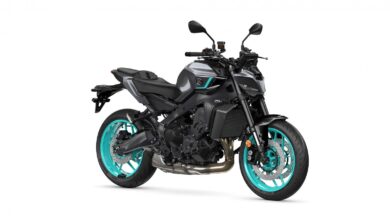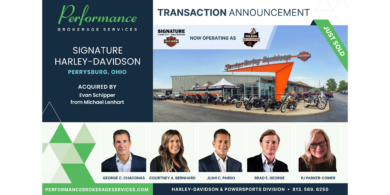Jul. 12, 2010 – New Yamaha insurance program set for dealers
Yamaha Motor Corp., U.S.A. is working with an industry warranty provider to give dealers a chance at offering Yamaha service contracts under a dealer-owned re-insurance program.
The program, commonly referred to as a PORC (Producer Owned Reinsurance Company), is geared for dealerships that sell at least 30 service contracts per month.
The program, still in its infancy, allows dealers to sell Yamaha Extended Service contracts for Yamaha vehicles and Aftercare extended service contracts for other brands’ vehicles through the dealer principal’s own reinsurance company.
Reinsurance companies are used extensively in the auto industry as well as to a lesser extent in the powersports industry.
Here is how a reinsurance program works: In a typical situation, a dealer sells a $600 extended service contract and pockets $350, sending the remaining $250 to an OEM or aftermarket administrator. Typically the administrator keeps a portion of that $250 as an administration fee. Often there is an agent who gets a commission out of the $250, and the remainder is sent to an insurance company (an underwriter). The underwriter takes its fee out of the amount it receives. The balance is called the premium, which is used to pay claims. Reinsurance works in a similar way except that after the underwriter takes its fee, instead of holding the premium in a mass account with its other business, it cedes the premium to the dealer-owned reinsurance company. That premium is held to handle a dealer’s claims, allowing the dealer to benefit from the investment income and the underwriting profit.
Julia McCarthy, president of MMCS Inc./Aftercare, notes for such a program to be profitable dealers must sell an average of at least 30 service contracts per month. However under this new program, not all 30 would have to be for Yamaha units, McCarthy said, noting the 30 also could include contracts for other manufacturers, as well as used units.
Dealers who start such a reinsurance company would pay a start-up fee and then have smaller, annual fees going forward.
Colin Haugh, manager of Yamaha Extended Service for Yamaha Motor Corp. U.S.A. says Yamaha felt comfortable working on the new insurance program because of its prior relationship with Aftercare and the possible added income for dealerships, which often are having to get more revenue from each sale in this challenging economy.
“The extended warranty business is a key thing for dealers,” he said. “It’s a big part of their profits, it’s a big part of their customer service.”
It’s also key to Yamaha’s efforts to keep in close communication with its customers and their new Yamaha motorcycles, scooters, ATVs, side-by-sides, PWC and boats.
“That’s a big point with us,” Haugh said. “We want to stay close to our customers.
“When a customer has an extended warranty contract, they’re close to us for a lot longer than just the (original) one-year warranty. It enables us to know what is happening in terms of the claims on the unit. So we want to encourage dealers to sell YES so we can be more involved with the customer.”
McCarthy noted reinsurance programs also provide incentive for dealers to stay in better touch with their new unit buyers to ensure maintenance is being properly performed on those new units.
“If people have their vehicles maintained regularly, there’s less likelihood of failure,” McCarthy said. “Failures occur for several reasons, but if you have a professional looking at a vehicle regularly, (s)he might find something that has the potential for going wrong before it becomes catastrophic.”
As part of the new program, Aftercare is working with dealers to examine their past service and warranty work to make sure a reinsurance program would make sense financially for the dealership. Part of that examination includes looking at current loss ratios on current service contracts and average claim costs and frequency.
The reinsurance program is being offered throughout the United States.




